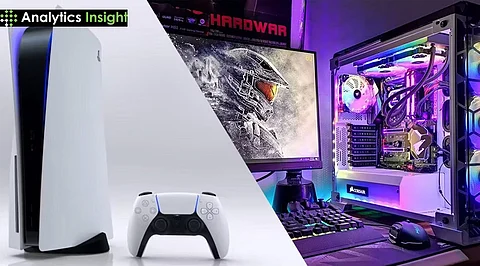

The debate between PC gaming and console gaming has been a long-standing one, and each side has its loyal supporters. Both platforms offer unique gaming experiences, and the choice between them ultimately comes down to individual preferences and priorities. In this article, we’ll explore the pros and cons of each platform to help you make an informed decision.
Versatility: PC gaming offers unparalleled versatility. You can upgrade individual components like the CPU, GPU, and RAM to keep your system up to date with the latest technology. This allows for better graphics, higher frame rates, and improved overall performance.
Game Library: The PC gaming library is vast and diverse, with access to a wide range of games, including exclusive titles, indie gems, and classic titles. You can also use emulators to play games from older consoles.
Customization: PC gamers can customize their gaming setups, from choosing the peripherals, RGB lighting, and even the operating system. This level of personalization allows players to create a gaming environment that suits their preferences.
Mods: Many PC games support mods created by the gaming community. Mods can enhance graphics, introduce new gameplay elements, or even create entirely new game experiences.
Backward Compatibility: PCs have better backward compatibility, as you can still play older games on modern hardware with the right software and settings.
Cost: High-quality gaming PCs can be expensive, and staying up to date with the latest hardware can be a continuous financial commitment.
Technical Know-How: Building or maintaining a gaming PC may require technical expertise. Some users may find this intimidating or time-consuming.
System Requirements: To enjoy the best graphics and performance, you may need to frequently upgrade your PC to meet the demands of the latest games.
Affordability: Consoles typically offer a more budget-friendly gaming experience. You get a complete gaming system for a fixed price, eliminating the need for costly upgrades.
Ease of Use: Consoles are designed for simplicity. They are plug-and-play, requiring minimal setup and no concerns about hardware compatibility or software updates.
Exclusive Titles: Consoles boast a unique advantage with exclusive titles that are not available on other platforms. These games offer a distinct gaming experience.
Local Multiplayer: Many console games are designed for local multiplayer, making them ideal for playing with friends and family in the same room.
Longevity: Consoles tend to have a longer lifespan compared to individual PC components, which may become outdated more quickly.
Limited Upgradability: Consoles lack the flexibility for hardware upgrades, meaning you’re bound to the performance and capabilities of your initial purchase.
Game Library: Although consoles have a strong game library, it is more limited in scope compared to the vast selection available on PC. This can result in missing out on some indie or niche games.
Online Subscription: Access to online multiplayer and additional content often requires a subscription service, adding to the overall cost of console gaming.
Lack of Mods: Console games typically do not support mods, limiting the ability to modify or enhance the gaming experience.
In conclusion, the choice between PC gaming and console gaming is highly dependent on your personal preferences and priorities. If you value flexibility, cutting-edge graphics, and an extensive game library, a gaming PC might be your best bet. Conversely, if affordability, simplicity, and access to exclusive console titles are your main concerns, a gaming console may be the ideal choice. Ultimately, both platforms offer fantastic gaming experiences, and your decision should align with your gaming preferences and budget.
